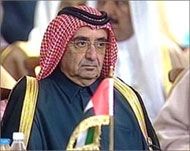
People die everyday. It is hard to imagine a greater “life and death†issue than death, not only on the one who dies but for those who mourn. Today’s news, so new it did not make today’s edition of the New York Times, is full of death. The front page of the New York Times titles a headline “12 Miners Are Found Alive, Family Members Say,†but the hazard of deadlines prevented the newer news this morning that in fact 12 were found dead and only one found barely alive. On today’s Al-Jazeera it is announced that the ruler of Dubai died. On NPR this morning there was a report of a suicide bomber blowing himself up during an outdoor funeral in Muqdadiya, north of Baghdad, taking more than 30 mourners with him. And imagine all those people, thousands to be sure, who died in the last 24 hours but did not make the news.
The deaths in Dubai and Muqdadiya, Iraq could hardly be different to those left alive to think about them. In both cases the deceased were Muslims, who died with the belief that they would receive a reward for good or ill in the afterlife. Since 1990 Shaykh Maktoum bin Rashid Al Maktoum was the ruler of Dubai, an economical oasis that makes it the commercial Mecca of the region. He died in Australia, because with his vast oil wealth he could afford the best health care available. He had succeeded his father as ruler, but left the day-to-day ruling to the crown prince, a younger brother. Shaykh Maktoum was no rabble rouser, no ideologue in the mold of Osama Bin Laden. To the extent he was covered in the international news it was due to his ownership of some of the world’s finest racehorses, which competed in major races around the world. His death will not go unnoticed in Dubai, where 40 days of official mourning have been declared and government offices will be closed for a week. Whatever reception a wealthy ruler like Shaykh Maktoum receives in the hereafter, he will be properly mourned and his body will rest in the peace of a small but stable nation state with no debt.
The multiple deaths in Muqdadiya offer a stark contrast. Here in a cemetery about a hundred mourners had gathered to bury the victims of an assassination attempt last Tuesday on a local leader of the Dawa party of Ibrahim al-Jaafari, the Iraqi prime minister. Those being interred were the son of the local party leader and bodyguard, both of whom died in the attempt. First there were mortar shells lobbed at the men mourning and then a suicide bomber blew himself up in their midst. For this cruel event there will be no official 40 days of mourning, although the number of mourners will be large and their memories bitter. Government offices will be open, or not, as usual, if ordinary Iraqis can find the gas for their cars to drive there. At least 11 more Iraqis died during an attack on a convoy of oil tankers bringing the scarce petrol to Baghdad.
After death, regardless of the religion you do or do not practice, it is anyone’s bet what happens. We can only hope that more people will follow the apt advice in the Quranic chapter al-Ma’arij:
“A sceptic once demanded that punishment be visited forthwith upon the unbelievers. No power can hinder God from punishing them. He is the Lord of the Ladders, by which the angels and Spirit will ascend to Him in one day: a days whose space is fifty thousand years. Therefore conduct yourself with becoming patience.â€
Daniel Martin Varisco